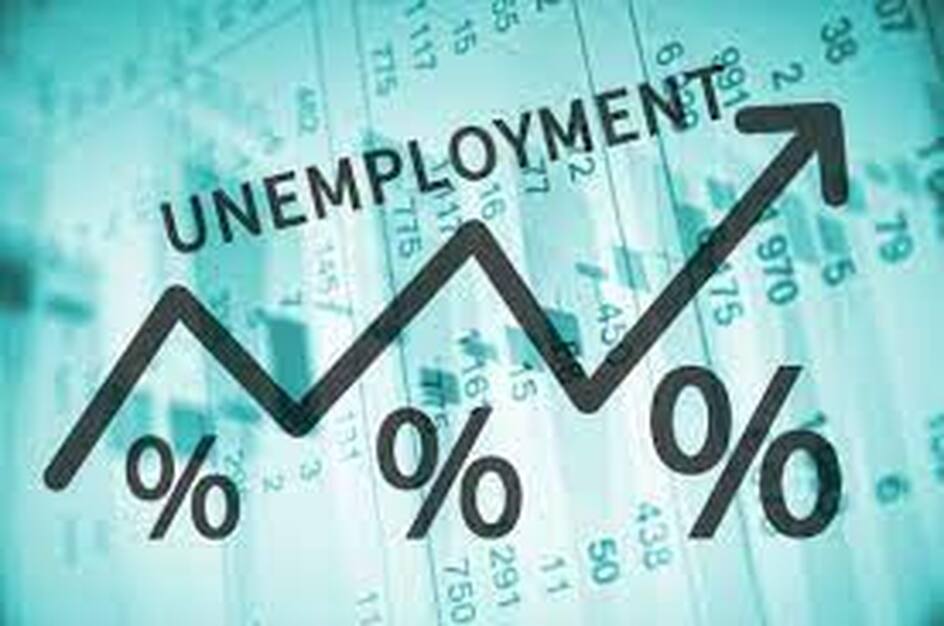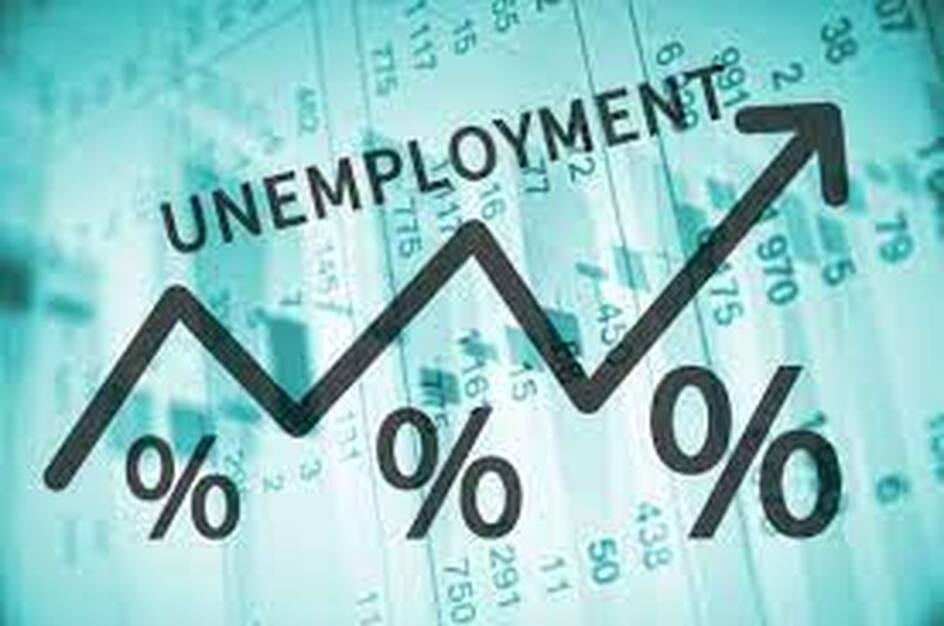|
🎃 It's the season of fright, and you know what's truly scary? Not the economy! Well, at least not when you dive into the latest financial news: 🍬Consumers, it seems, are hopped up on a sugar high. They spent 0.7% more in September. Goods spending rose 0.7% and, in "real" terms (inflation-adjusted), is up 2.4%. Meanwhile, spending on services increased by 0.8%. 🪦New orders for durable goods were resurrected in September. A big contributor to the 4.7% increase was the 92.5% surge in commercial aircraft orders. Even when the usually volatile transportation category is removed, orders rose by a healthy, decidedly undead, 0.5% 🧌In Q3, real GDP grew at a monstrous 4.9% annual rate. That's the fastest growth rate since 2014, except when we exclude the COVID re-opening in 2020-21. "Core" GDP, stripping out government purchases and inventories, increased at a healthy 3.3% annual rate. It's like some unstoppable force possesses the economy. At least for now. 👻And yet, there is some reason for trepidation this week. As ever of late, the spooky ghost of inflation made its presence felt as PCE prices (the Fed's favorite inflation measure) rose by 0.4% in September, bringing the year-on-year increase to 3.4%. Inflation is that trick-or-treater who keeps knocking on your door and taking more and more of your candy. Seriously...beat it, kid. It's just not funny anymore.
0 Comments
Recession? What recession? Last week’s data solidified that 2023 won’t be the year the economy contracts. 📆 🏡Existing Home Sales in September declined by 2.0, falling for the fourth consecutive month. Sales are now at the slowest pace since the 2008/9 Financial Crisis. A surge in benchmark interest rates obviously drives challenges in the housing market. 30-year fixed mortgage rates are now nearing 8%, leading to a 40% increase in monthly payments for the median existing home with a 20% down payment. 🏗️Housing Starts in September increased by a solid 7.0%. Existing homeowners hesitate to list their properties due to low fixed mortgage rates, and many prospective buyers are forced to turn to new builds. 🏭Industrial Production in September had a surprising 0.3% increase, with gains across major categories. Industrial activity has accelerated at a 5.2% annualized pace in the past three months. 🛍️ Retail Sales in September were strong, with a 0.7% increase that beat expectations. Factoring in revisions to previous months, retail sales grew even faster at 1.0%. 📈Despite concerns about a recession, Real GDP looks to have expanded at about a 4.7% annual rate in the third quarter, potentially the fastest pace of growth since 2014 (excluding the COVID-related reopening in 2020-21). Rising rates should bring on a recession at some point. But not just yet. ⚾There was a time, not long ago, when no one paid much attention to inflation data. It was boring...the financial equivalent of a five-hour MLB playoff game featuring all twenty-six rostered pitchers. That time is not now, thanks to monetary stimulus that has yet to work its way through the economy. Also, MLB game times are down significantly thanks to a host of rule changes before opening day. But make no mistake about it...as the World Series looms, inflation is back to playing hardball.
💰The Consumer Price Index (CPI) Rose 0.4% in September. Meanwhile, The Producer Price Index (PPI) Rose 0.5% in September. Consumer prices exceeded the consensus expectation, while the twelve-month comparison held steady at 3.7%. Not great, but not awful either. Producer prices, up 2.2% year-over-year, have fallen considerably since the 11.7% peak in March 2022. But wait for it because the curve ball is coming, and the Federal Reserve’s fight against inflation will require extra innings. The Fed is flailing because inflation has made a call to the bullpen and is throwing harder of late, with consumer prices up 4.9% and producer prices up 7.7%, at an annualized rate in the last three months. Play ball! 🏟 🇺🇸Bosses Day was Born in the USA in 1958 when Illinois resident Patricia Bays Haroski registered National Boss’ Day with the U.S. Chamber of Commerce. He really got two days because he was also her Dad. Talk about double duty! 🙆♀️💼
Boss's Day (also written Bosses Day or Boss' Day) is generally observed on or around October 16th in the United States. 🎸🌟 But don’t try to celebrate Boss's Day with THE BOSS, Bruce Springsteen. According to the latest scoop from the Asbury Park Press, the iconic musician, often known for his heartfelt anthems and gritty performances, never enjoyed the nickname. His bandmates gave it to him because he was the one who distributed checks after gigs. It stuck, but was never meant for public consumption. Anyway...here's to all the bosses out there - whether they're your parents, mentors, or just completely rock. 🎶🤘 #BruceSpringsteen #TheBoss #RockLegend #AmericanIcon #MusicNews #NationalBoss Breaking News for 2024! 📆✨
It's that time of the year again when we eagerly await the big announcement. 🤩 The Social Security Administration has just revealed the COLA (Cost of Living Adjustment) for 2024. 📈💰 📣 Drumroll, please... The 2024 COLA is set at a 3.2% percent increase! 🙌💵 🗞Spread the word, and share the news. Social security remains a key part of retirement planning! 🎉 🌍✨ #COLA2024 #SocialSecurity #FinancialSecurity #RetirementMatters Madoff....Bankman...You can’t make this stuff up.
📉Just like Madoff, Bankman (allegedly-we will know more soon) deceived many and only came to the surface when the markets turned against him and liquidity dried up. 👨🏼⚖️The FTX cryptocurrency scandal and bankruptcy may have left us wondering why even the smartest and most famous people didn't see it coming. But history shows that this is no surprise. 💰Toward the end of a market cycle, greed often takes over as the prevailing investor emotion and even the most seasoned investors tend to overlook the warning signs. This week’s economic data was tragic-comic amidst lots of geo-political drama:
🎭Measurement for Measurement: In September, the ISM Manufacturing Index increased to 49.0, indicating the eleventh consecutive month of contraction in the US factory sector, though at a slightly slower pace. Only five of eighteen industries saw growth, with survey respondents citing concerns about recession, sluggish demand, and pressure to be more cost-competitive from customers. 🎭The (Still) Merry Merchants of the US: Conversely, the ISM Non-Manufacturing Index declined to 53.6 in September, showing continued expansion in the service sector, narrowly surpassing expectations. Thirteen of eighteen major industries reported growth. 🎭 Labor’s Love Lost: Regarding employment, nonfarm payrolls increased by 336,000 in September, surpassing the consensus expectation of 170,000. The job gains were widespread, led by increases in leisure and hospitality, as well as healthcare and social assistance. This positive data is bad news for Fed watchers. This intense labor market performance raised the likelihood of an additional rate hike and suggested that the Federal Reserve keep short-term interest rates at current levels for a longer duration, possibly extending into 2024. A Study of Cognitive Biases, Recency Bias, and the Hot Hand Fallacy Sports fans are passionate and often emotionally invested in the performance of their favorite teams. When a team undergoes a prolonged period of poor performance, cognitive biases can come into play, distorting the perception of reality. The Chicago Bears' 14-game losing streak provides an intriguing case study to explore how recency bias and the hot hand fallacy can affect the team's performance and fan reactions. Investors who are also passionate and emotionally devoted should take note of the lessons learned.
Recency Bias Recency bias is a cognitive bias where individuals tend to give more weight to recent events while underestimating the importance of past events. Recency bias may have influenced fan reactions, coaching decisions, and player performance assessments in the context of the Chicago Bears' losing streak. During the losing streak, fans became increasingly pessimistic about the team's chances, focusing on the recent losses rather than considering the team's historical successes. Their most recent loss to Denver, a game they seemingly had in hand during the first half, comes to mind. This negative perception could lead to a decline in morale, affecting the team's overall performance. Coaches and management may have been more inclined to make drastic changes, such as benching key players or implementing new strategies, due to the pressure created by recency bias. These decisions may or may not have been rational but could have been influenced by the perceived need for immediate action. The Hot Hand Fallacy The hot hand fallacy is a cognitive bias that leads people to believe that a person or team is more likely to succeed in the future if they have recently achieved. In the context of the Chicago Bears' losing streak, the hot hand fallacy might have influenced decisions regarding player rotations and strategies. Coaches and fans alike may have fallen into the trap of believing that changing players in and out of the lineup would break the losing streak. This could lead to constant changes in the roster, disrupting team cohesion and not necessarily improving performance. The Chicago Bears' 14-game losing streak is a case study of how cognitive biases, such as recency bias and the hot hand fallacy, can influence sports outcomes and decisions. These biases can impact fan reactions, coaching choices, and player performances, potentially exacerbating a team's struggles during a challenging period. Fans, coaches, and players need to take a more rational and data-driven approach to evaluating performance to mitigate the effects of these biases. By recognizing the presence of cognitive biases and actively working to counteract them, teams can improve their decision-making processes and enhance their chances of winning, even in the face of adversity. Investors too, should engage in data-driven analysis and avoid biased interpretations of performance that can decrease their chances of ultimate success. Availability Bias causes us to think that the possibility of an event is increased if we can remember it happening previously. Shark attacks are horrific, receive a lot of media attention, and are turned into movies and TV shows. Thus, they are highly memorable...and extremely rare. The problem for investors using this mental shortcut is that the veracity of information relates little to how easy it is to recall or remember. Availability Bias is a trap made more hazardous by social media algorithms feeding views, likes, and meme trades. Use your head when you swim with the sharks.
📊 Economic Updates:
|
Patrick HueyPatrick Huey is a small business owner and the author of two books on history and finance as well as the highly-rated recently-released fictional work Hell: A Novel. As owner of Victory Independent Planning, LLC, Patrick works with families and non-profit organizations. He is a CERTIFIED FINANCIAL PLANNER™ professional, Chartered Advisor in Philanthropy® and an Accredited Tax Preparer. He earned a Bachelor’s degree in History from the University of Pittsburgh, and a Master of Business Administration from Arizona State University. Archives
June 2024
Categories |
Patrick Huey is an investment advisor representative of Dynamic Wealth Advisors dba Victory Independent Planning, LLC. All investment advisory services are offered through Dynamic Wealth Advisors. You can learn more about us by reading our ADV. You can get your copy on the Securities and Exchange Commission website. See https:/ / adviserinfo.sec.gov/IAPD by searching under crd #151367. You can contact us if you would like to receive a copy. The tax services and preparation conducted by Patrick Huey and Victory Independence Planning are considered outside business activities from Dynamic Wealth Advisors. They are separate and apart from Mr. Huey's activities as an investment advisor representative of Dynamic Wealth Advisors.
Patrick Huey is the author of three books: "History Lessons for the Modern Investor", "The Seven Pillars of (Financial) Wisdom" and "The Gifts hat Keep on Giving: High Performance Philanthropy For Real People"; this is considered an outside business activity for Patrick Huey and is separate and apart from his activities as an investment advisor representative with Dynamic Wealth Advisors. The material contained in these books are the current opinions of the author, Patrick Huey but not necessarily those of Dynamic Wealth Advisors. The opinions expressed in these books are for general informational purposes only and are not intended to provide specific advice or recommendations for any individual or on any specific security. They are intended to provide education about the financial industry. To determine which investments may be appropriate for you, consult your financial advisor prior to investing. Any past performance discussed in these books is no guarantee of future results. As always please remember investing involves risk and possible loss of principal capital.
Victory Independent Planning, LLC. provides links for your convenience to websites produced by other providers or industry related material. Accessing websites through links directs you away from our website. Victory Independent Planning, LLC. is not responsible for errors or omissions in the material on third party websites, and does not necessarily approve of or endorse the information provided. Users who gain access to third party websites may be subject to the copyright and other restrictions on use imposed by those providers and assume responsibility and risk from use of those websites.
Certified Financial Planner Board of Standards, Inc. (CFP Board) owns the CFP® certification mark, the CERTIFIED FINANCIAL PLANNER™ certification mark, and the CFP® certification mark (with plaque design) logo in the United States, which it authorizes use of by individuals who successfully complete CFP Board’s initial and ongoing certification requirements.






 RSS Feed
RSS Feed